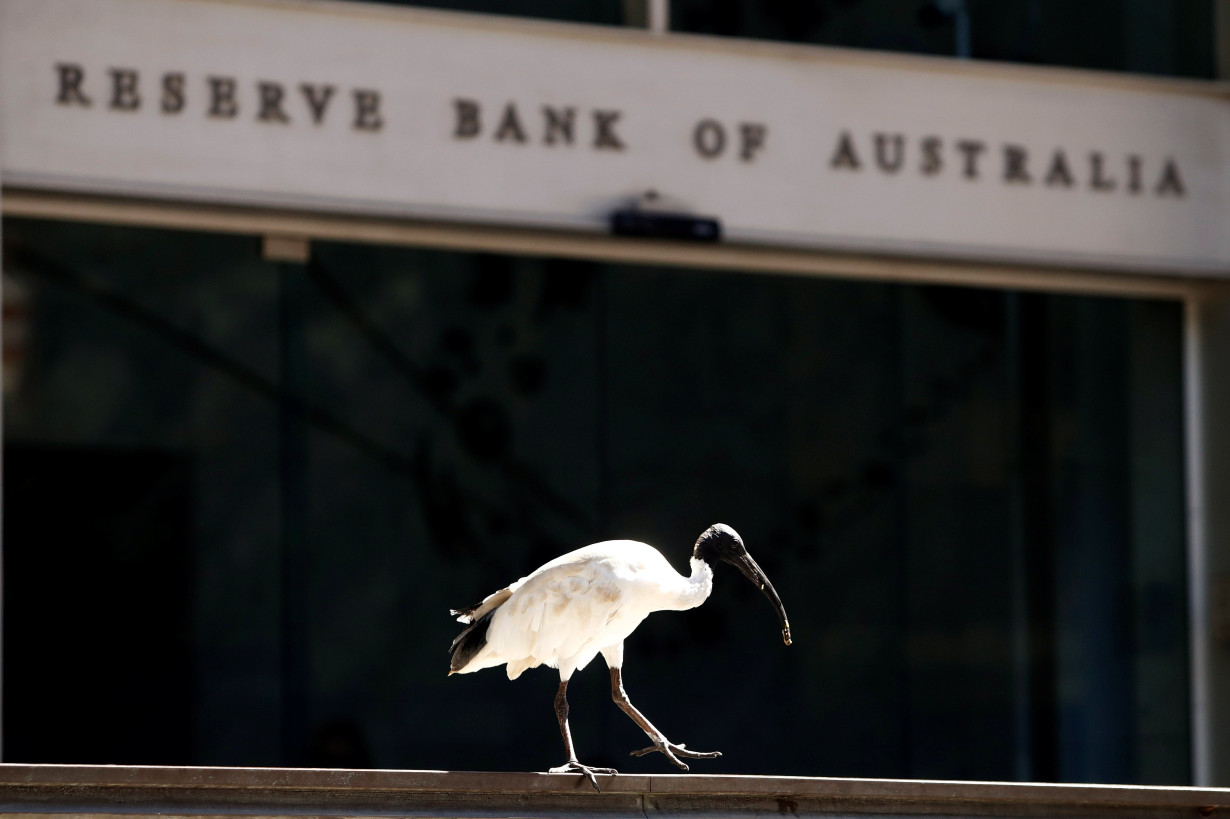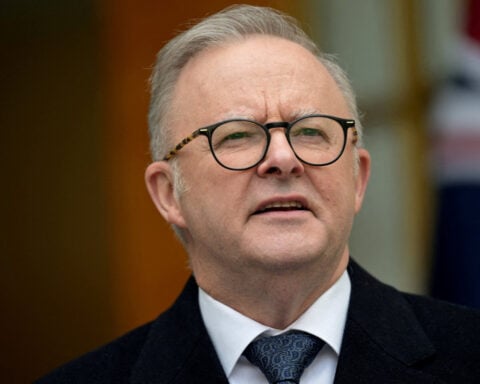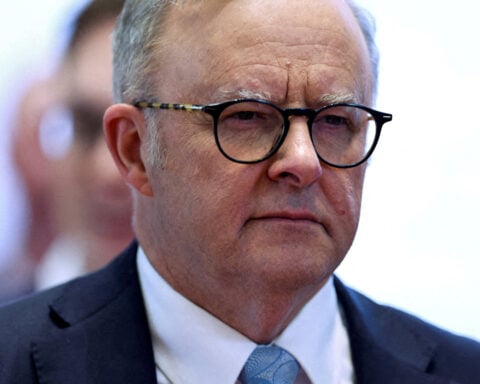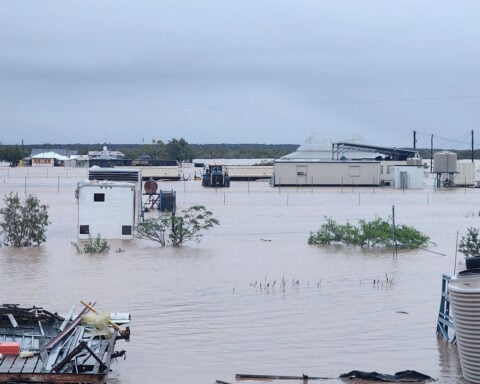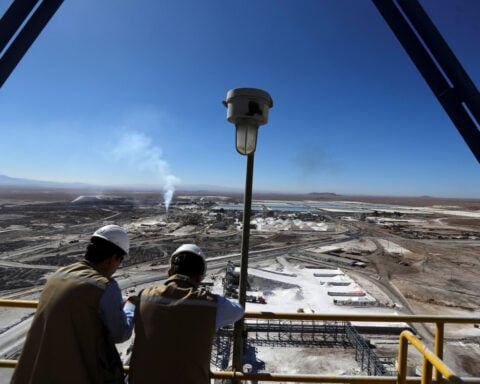By Devayani Sathyan
BENGALURU (Reuters) - Easing inflation has opened the door for the Reserve Bank of Australia to begin an anticipated brief series of interest rate cuts, starting with a quarter point reduction to 4.10% on Tuesday, according to most economists in a Reuters poll.
This would be the RBA's first rate cut in over four years, joining a rate-cutting cycle other major central banks started last year and that the U.S. Federal Reserve has already put on pause over inflation concerns.
Inflation in Australia fell to 2.4% last quarter, well within the RBA's 2-3% target band, nudging several economists to bring forward their rate cut expectations from the April-June quarter to February 18.
A slight dip in economic growth and easing inflation lessens the need for policymakers to maintain rates in restrictive territory for longer, economists say.
While moderating inflation aligns with one part of the RBA's mandate, the strength in the labour market and steadfast wage inflation diminish the need for the RBA to move aggressively. A robust housing market is also in no need of lower rates.
Over 90% of economists, 40 of 43, in the February 6-13 poll expected the RBA to cut its official cash rate by 25 basis points to 4.10% at the end of its two-day policy meeting on February 18. The remaining three predicted rates to stay unchanged.
In a January poll, just over 40% had forecast the RBA to cut on Tuesday. Interest rate futures are pricing in a near-80% probability of that happening.
"The prudent action for the RBA now would be to cut, but cut slowly and just see how data evolves through time. The worst thing they could possibly do is cut hard and then have to reverse. That's the clear risk case for them," said Craig Vardy, head of fixed income, BlackRock Australasia.
All major local banks, ANZ, CBA, NAB, and Westpac expect a 25 basis point cut on Tuesday and predict 50-100 basis points of cumulative rate cuts this year.
Over 75% of respondents who had a long-term view, 31 of 41, forecast another quarter-point cut in the April-June quarter, taking rates to 3.85%.
According to median forecasts, the interest rate will drop to 3.60% by end-September. This is projected to be followed by an extended pause lasting until at least early 2026, resulting in a total of 75 basis points worth of rate cuts in this cycle.
"They've pretty much got the green light to go from an inflation standpoint," said Vardy. "We think probably three rate cuts perhaps this year and the risk is we only get two. But getting towards a 3-1/2% nominal neutral level - that's probably where they'll end up."
That was much less than the expected 250 and 150 basis points of rate cuts in total from the Reserve Bank of New Zealand and the U.S. Federal Reserve, respectively, since they started cutting last year. [NZ/INT]
"If we've got a labour market that's maybe tightening and we've got consumer spending starting to pick up which points to a faster pace of economic growth, the RBA has to be really careful that they don't cut too far, too fast because then they perhaps run the risk of stimulating inflation again," said Ben Picton, senior strategist at Rabobank.
Inflation is predicted to average 2.8% this year and the economy is forecast to grow 2.0%, according to a separate Reuters poll.
(Other stories from the February Reuters global economic poll)
(Reporting by Devayani Sathyan; Polling by Susobhan Sarkar and Vijayalakshmi Srinivasan; Editing by Ross Finley and Bernadette Baum)

 Trump has begun another trade war. Here's a timeline of how we got here
Trump has begun another trade war. Here's a timeline of how we got here
 Canada's leader laments lost friendship with US in town that sheltered stranded Americans after 9/11
Canada's leader laments lost friendship with US in town that sheltered stranded Americans after 9/11
 Chinese EV giant BYD's fourth-quarter profit leaps 73%
Chinese EV giant BYD's fourth-quarter profit leaps 73%
 You're an American in another land? Prepare to talk about the why and how of Trump 2.0
You're an American in another land? Prepare to talk about the why and how of Trump 2.0
 Chalk talk: Star power, top teams and No. 5 seeds headline the women's March Madness Sweet 16
Chalk talk: Star power, top teams and No. 5 seeds headline the women's March Madness Sweet 16
 Purdue returns to Sweet 16 with 76-62 win over McNeese in March Madness
Purdue returns to Sweet 16 with 76-62 win over McNeese in March Madness
